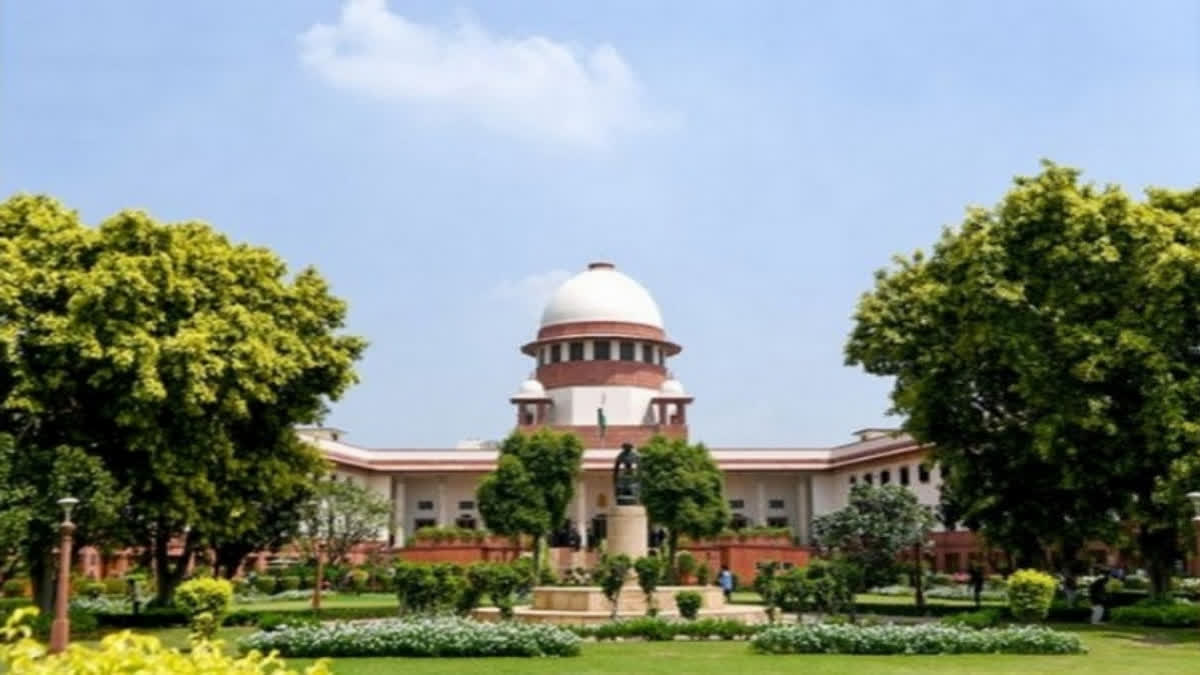New Delhi: 34-year-old Makkella Nagaiah was imprisoned for over 12 years in a murder case. The process of law, which commenced against him in 2005, led to his conviction and sentence for life imprisonment concurrently by the trial court, Andhra Pradesh High Court as well as the Supreme Court. However, earlier this week the top court concluded that Nagaiah was 16 years 7 months old on the date of the crime and ordered his immediate release.
Nagaiah, represented by advocate Rishi Malhotra, filed a special leave petition (SLP) against the concurrent findings of the sessions court and the High Court, and the apex court order passed on July 12, 2022, dismissing his SLP, which led to the conviction and the sentence.
A three-judge bench comprising Justices B R Gavai, P S Narasimha, and Sanjay Kumar considered the report of the Additional Sessions Judge, Khammam, forwarded by the High Court on the issue of juvenility of the petitioner. “In the report dated May 13, 2023, the FAC II Additional Sessions Judge, Khammam, has categorically come to the conclusion that the date of birth of Makkella Nagaiah is May 2, 1989”, noted the bench, in its judgment delivered on September 5.
Accepting the report, the apex court observed that it was based on a detailed examination of the documents, and exhibits, coupled with the oral evidence of witnesses. The bench said: “If the date of birth of the petitioner is May 2, 1989, he was 16 years 7 months old as on the date of the crime, i.e., 21.12.2005. Accordingly, the petitioner was a juvenile in conflict with the law on the date of commission of the offence”.
Two months after the dismissal of the SLP, Nagaiah filed a plea praying that a writ of mandamus be issued to the state to verify his claim of juvenility and to pass necessary consequential orders. The apex court issued notice on his plea.
It is well settled that the question of juvenility can be raised before any court and at any stage, as prescribed under Section 7A (1) of the Juvenile Justice Act, 2000. The state filed an affidavit through the inspector of police, Khammam district, Telangana, stating that the petitioner studied at the M.P.P. School, Putrela Main, Village of Vissannapet Mandal, Krishna District, Andhra Pradesh, from first to third standard from 1994 to 1997 and his date of birth is May 2, 1989.
The apex court noted that in view of Section 16 read with Section 15(1)(g) of the Juvenile Justice Act, 2000, the maximum period for which the petitioner could have been in custody is three years. Nagaiah along with others was involved in a murder case dated December 21, 2005. The apex court said: “Having accepted the report of the Additional Sessions Judge, Khammam, the petitioner can no longer be incarcerated. In view of the above, we allow the Writ Petition and direct that the petitioner be released forthwith if he is not required to be detained in any other case”.
Also read: SC extends time till Sep 15 for grant of approval to over 750 pvt technical colleges in UP



